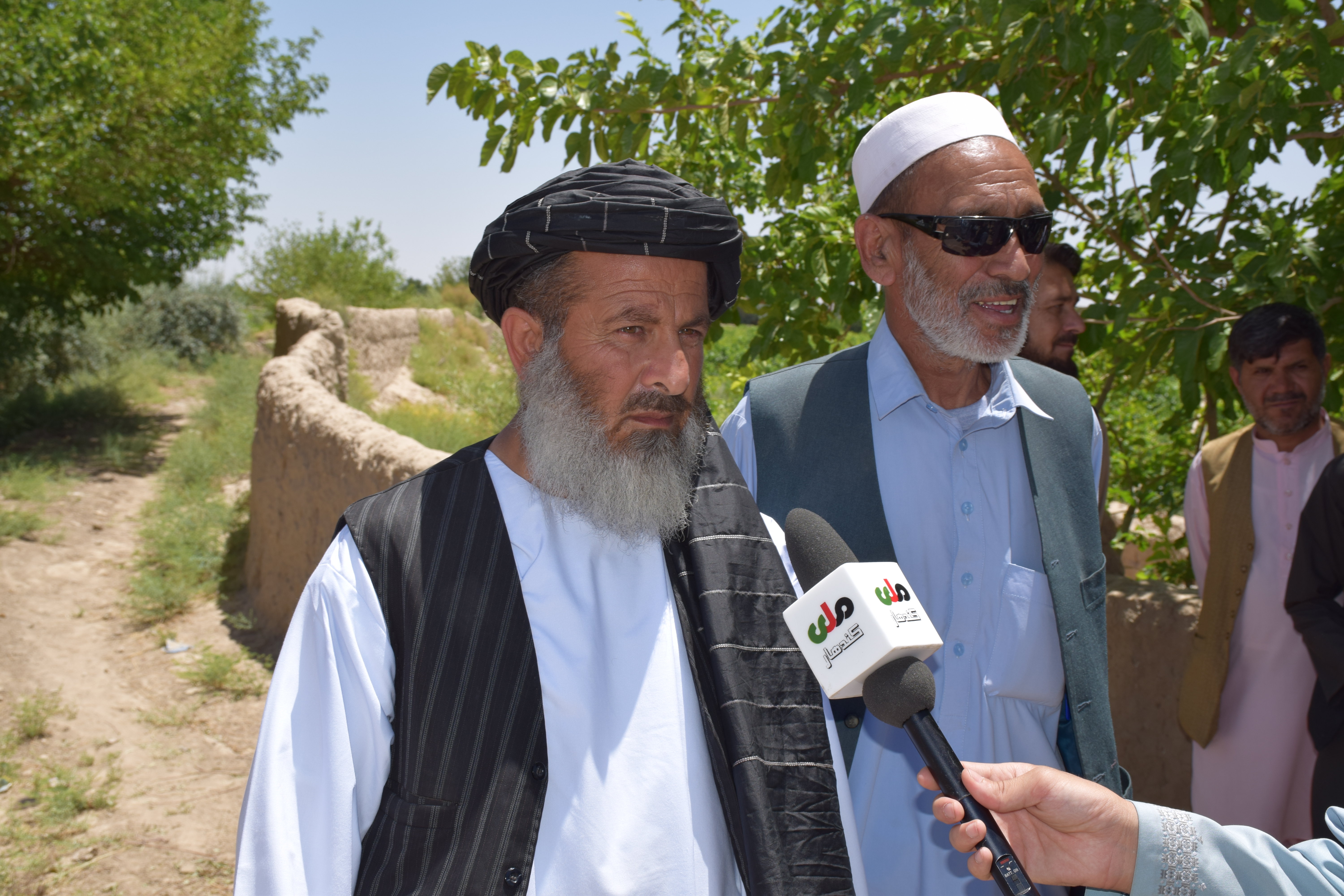From 1996—2011, when Panjwayi District was a Taliban stronghold in Kandahar Province, the irrigation infrastructure, crop production and farmers’ access to markets deteriorated. Thousands of farmers left the district and poppy production flourished.
When Afghan Security Forces regained control in 2012, the local government began rebuilding the rural economy. Mr. Naik Mohammad, the “Amir” of the Panjwayi District Development Assembly, says, “People were always complaining about poor irrigation, and fighting about water allocations. Now crop yields are rising, more land is irrigated, and farmers are returning to Panjwayi.”

A GIRoA official is interviewed by news agencies.
Blumont’s USAID-funded Kandahar Food Zone program began in 2013. KFZ built retaining walls, water dividers, control gates and aqueducts to rehabilitate 14 irrigation canals in Panjwayi district. The program taught local Mirabs (Water Masters) how to distribute irrigation water, planted pomegranate orchards, installed vineyard tellising, built greenhouses and trained thousands of farmers how to grow crops that are viable alternatives to poppy. From 2013-2016, the population grew by 16% each year.
In May 2017, representatives of the Provincial Governor’s Office and the Directors of Rural Rehabilitation and Development, Agriculture, Irrigation and Livestock, Counter Narcotics, and the Arghandab River Sub-Basin Authority inspected the canals KFZ rehabilitated in remote areas of Panjwayi. They met with farmers to discuss their problems, and national television stations covered the event, highlighting the role of the provincial government and the importance of USAID assistance.
After the inspections, Mr. Naik Mohammad said, “The rehabilitated canals improve the distribution of water and reduce conflicts between farmers, who have more water in canals and irrigate more often. Our coordination with aid organizations gives people hope that we can address their needs, and that their government will not leave them behind.”



